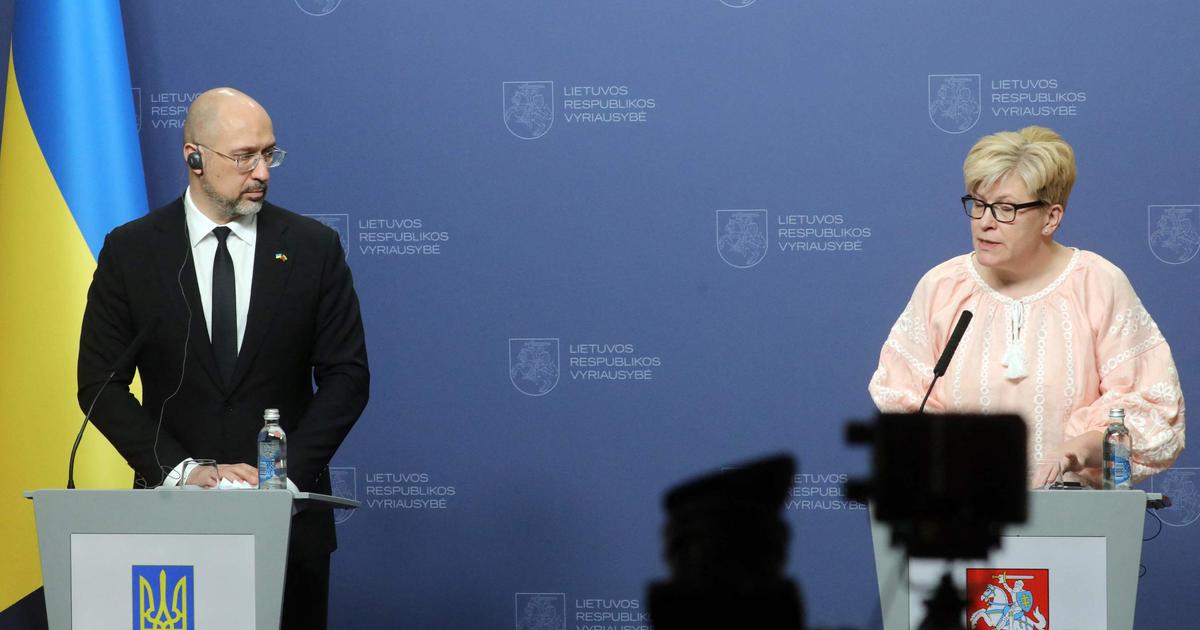“Are not warring parties”: Minister of Justice Buschmann explains how Germany can help Ukraine
Created: 05/07/2022, 09:22
By: Mike Schier, Christian Deutschlaender, Georg Anastasiadis
Minister of Justice Marco Buschmann (FDP) visited the editorial office of the Munich Merkur.
© Oliver Bodmer
When is Germany in the middle of the Ukraine war?
Justice Minister Marco Buschmann (FDP) warns of panic in an interview - but also of naive fearlessness.
Munich - When is peace, where does war begin?
Unfortunately, this is not just a question for senior legal seminars, but for day-to-day politics.
Germany wants to strengthen Ukraine without being drawn directly into the war with Russia.
Where is the red line?
We spoke to the Federal Minister of Justice about it.
Marco Buschmann (FDP) warns against panic – but also against naive fearlessness.
The 44-year-old from Gelsenkirchen, Dr.
jur., was previously parliamentary group manager for the Liberals and has been a minister since December 2021.
Interview with Marco Buschmann: "The war in Ukraine is going badly for Russia"
Nuclear threats from Russia, nuclear exercises in Kaliningrad: just Putin's bluff or cause for great concern for us?
No one can know for sure what's going on in Putin's head.
You can't trust him anymore.
We take news from Russia very seriously, but it also has to be viewed critically.
You have to know that the war in Ukraine is going badly for Russia.
There is a lot of conventional military tied up there.
In such situations, it is almost standard procedure for the Russians to put the nuclear deterrent potential in the shop window, and nobody should think of exploiting Russia's conventional weaknesses.
So: No cause for panic, but for precise analysis and prudence.
Is fear inappropriate?
Many a commentator writes these days that one should not be afraid of a war.
I think that's wrong.
War is a bloody beast.
He attacks everything that comes his way.
We are therefore acting very decisively: our goal is to avoid a military escalation between Russia and NATO.
But of course we are helping Ukraine to defend itself against this brutal attack.
We don't want Ukraine to lose this war.
As a lawyer, as the Federal Minister of Justice: Where is the limit from which one can speak of our participation in the war?
We supply arms to Ukraine, but that doesn't legally make us a party to the war.
For the question of war and peace, however, we should keep two things separate: factual action and law.
If Russia attacked Germany, we would be at war.
If Russia fired a missile at Poland, we would have the NATO alliance case.
This is the result of factual action.
The question of international law must be separated from this.
Interview with Marco Buschmann: “You take part in the war or stay out of it”
Namely?
There is an old, outdated view from the century before last.
At that time war between states was a common instrument of politics.
The rule was: you take part in the war or stay out of it.
International law experts call this the principle of neutrality.
Today, however, we have newer international law based on the UN Charter.
The principle is: war is forbidden.
The only explicit exception is to defend against attacks.
Like now Ukraine.
I agree.
And that has also changed the neutrality requirement.
A state that helps another state to exercise its right to self-defense does not automatically become a party to the war, even if it supplies heavy weapons.
This is the clearly prevailing opinion in international law.
This is also the consensus within the federal government.
Nice – but Putin himself defines when a country goes to war against him.
International law must be the yardstick for our actions, also and especially in a war that violates international law.
Our strongest weapon against Putin is the great unity in the EU, with the USA, with almost every civilized country in the world.
That makes us strong and also deters us.
This has also made unprecedented economic sanctions possible.
They hit Russia hard.
Putin's calculus was that liberal democracies were weak, decadent and incapable of action.
He was wrong.
Incidentally, also in the assessment of NATO.
NATO is showing its unity and strength.
Now there is even a list of states that are dying to join.
Critics argue that this can also fuel the conflict.
We shouldn't forget what Putin has done in recent years.
Since 2008 at the latest, he has been targeting individual states, destabilizing them and attacking them.
He's testing how far he can go.
From the occupation of Crimea in 2014, he drew the following conclusion: the resistance of the world is not strong enough.
But now, for the first time, there is an overwhelming unity and unity - real, hard, sensitive back pressure.
If we didn't do anything, we would have to expect Putin to keep testing the borders.
This is why the clarity of our response is so important.
It's being defended more than Ukraine right now.
It is also about our security in freedom.
Interview: geo/mik/cd















